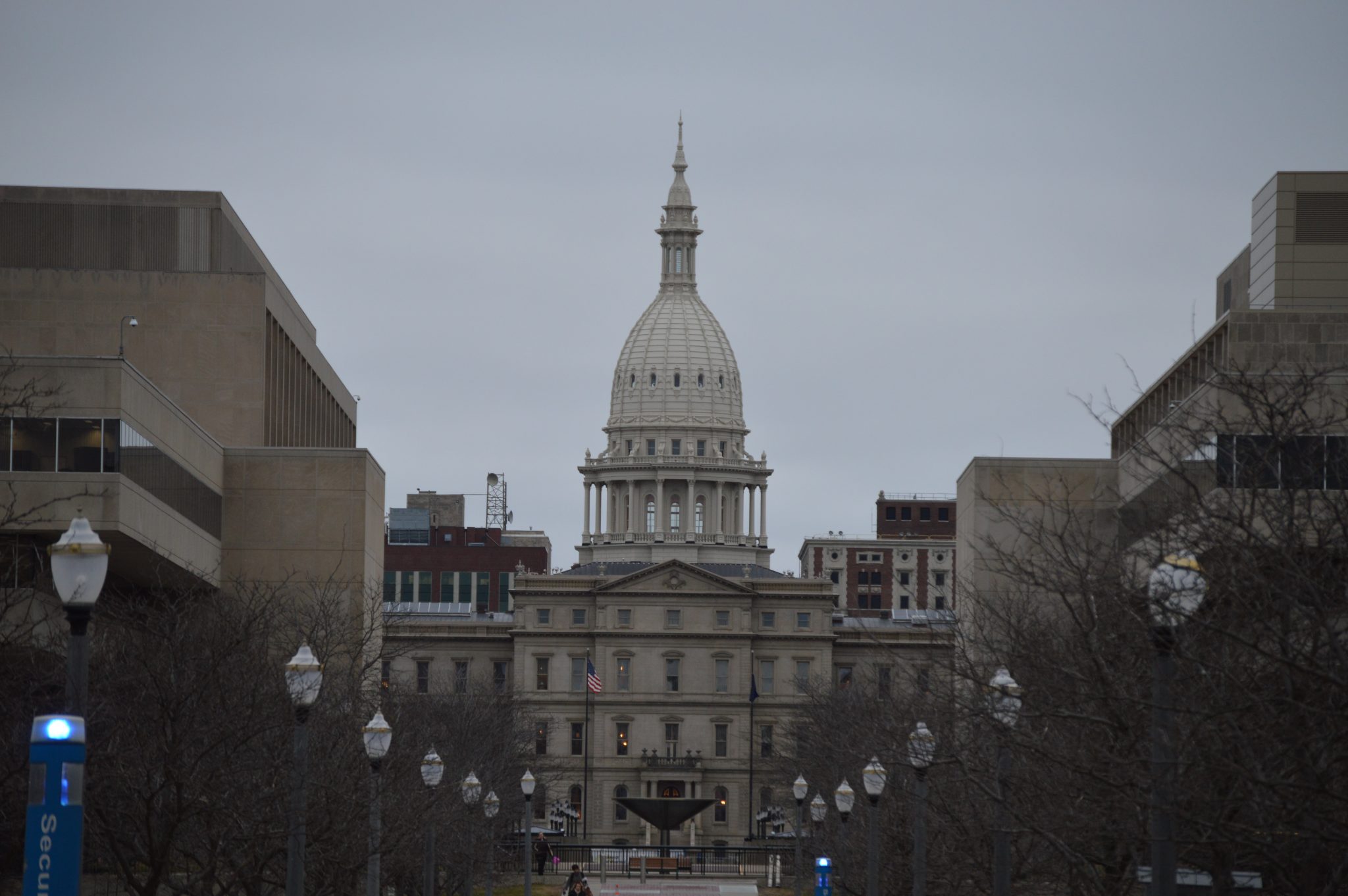MichMash: Is Compromise Possible After Contentious, Chaotic Lame Duck?
Michigan is about to have split government for the first time in eight years. It didn’t work out so well last time.

Michigan State Capitol building in Lansing, MI in January, 2018.

The state Legislature’s contentious and chaotic lame duck session is done.
But the stark partisanship on display these last four weeks in Lansing could have lasting effects on state government.
Lawmakers sent almost 400 bills to Gov. Rick Snyder’s desk in just the last four weeks. A number of those bills were approved by Republican majorities over the loud and vigorous objections of Democrats.
Now, with just days left in office, it will be up to Snyder to decide whether to sign or veto those controversial measures.
Regardless, for lawmakers returning to the state Capitol in 2019, there are likely to be some hard feelings.
As part of the weekly series MichMash, Jake Neher and Cheyna Roth talk about what that could mean as a Democrat gets ready to move into the governor’s office for the first time in eight years.
New leaders vow to work together
Gov.-elect Gretchen Whitmer was, at many times, the voice of the opposition in the state Capitol when she was Senate Democratic Leader. She spoke against the Republican majority’s successful attempts to make Michigan a Right to Work state and put further restrictions on abortions, among other things.
But the tone she is striking now is one of bipartisanship and of finding common ground.
“I went to the White House last week,” says Whitmer of her recent conversation with President Trump in Washington along with other new Midwest governors.
“I am serious about working with anyone who wants to solve problems,” she continues. “And that’s, I think, been the hallmark of the work that I did. It’s what I need and want to do as governor. And the whole theme of my campaign and theme of my governance is going to be about building bridges. We’ve got to work together to solve problems.”
Incoming state Senate Republican Leader Mike Shirkey (R-Clarklake) has a similar message.
“I’m looking for reasons and ways in which we can work together,” says Shirkey. “And if others choose the opposite because of historical actions, that’s their prerogative, but that would be unfortunate.”
Things did not go smoothly the last time Michigan had split government
Republicans have had total control of state government since 2011.
But before that, Democratic Gov. Jennifer Granholm battled with Republicans in the Legislature — especially Republican Senate Leader Mike Bishop — and there was gridlock on many important issues.
In 2007 and 2009, Michigan saw partial government shutdowns (sound familiar?) because the two parties could not come to an agreement before their deadline.
Now, those shutdowns only lasted a few hours combined. But it’s in stark contrast to the ease at which lawmakers and Gov. Snyder have passed budgets months early each year for the last several years in a row. Depending on your political persuasion, that might be a good thing or a bad thing.
Moving into 2019, it will be interesting to see if we’re headed for a repeat of those days of yore, or if this new batch of Democratic and Republican leaders will work to avoid that kind of gridlock.

